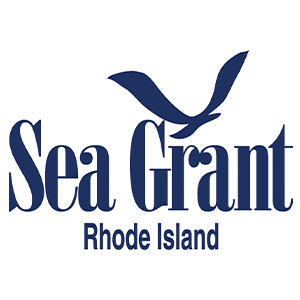| Funder | PI | Year | Duration | Location |
| Rhode Island SeaGrant | Davies | 2020 | 48 Months | URI |
Summary
Our goal is to advance our mechanistic understanding of the impact of microplastics, pollution, disease and ocean warming on commercially important shellfish species. We aim to improve our risk-assessment capabilities, by focussing on testing a novel hypothesis that microplastics will enhance the impact of pollutants and pathogens within marine food webs (e.g. Eastern Oyster, Crassostrea virginica). In turn, we will determine how predator-prey relationships with higher trophic level consumers are impacted under future ocean warming scenarios (e.g. Blue Crab, Callinectes sapidus), and quantify the potential for food web transfer of microplastics, pollutants and disease.
Rationale
Given the prevalence of microplastics in the marine environment, it is critical to understand the potential health risks they pose to oysters and the coastal communities, sustainable fisheries, and aquaculture they support within Rhode Island. However, there are numerous discourses around microplastics in the oceans, and the potential impacts it may have on both ecosystem and human health. We aim to link environmental plastic load assessments with controlled microcosm and mesocosm experiments using natural plastic concentrations to provide coherent, mechanistic interpretations of the roles that microplastics play as vectors for pollutants and pathogens in coastal bivalve-based food webs. This information and our outreach will better arm stakeholders, policy makers, and the general public with knowledge and data to better understand the fate and impact of microplastics within Rhode Island and New England.
We will provide input into the four major thematic areas that RI Sea Grant has focused upon for 2020-2022 (Healthy coastal ecosystems, Sustainable fisheries and aquaculture, Resilient communities and economies, Environmental literacy and workforce development). Microplastics are a potentially significant threat to the health of Narragansett Bay, and the organisms within. Our proposal is designed to provide mechanistic knowledge of the roles they play in pollutant and pathogen transfer through oyster-based food webs under present-day and future ocean warming scenarios. These data will support an enhanced risk-assessment capability regarding the overall impacts of microplastics and temperature on commercially valuable organisms within Rhode Island.
Objectives
Objective 1: Characterize spatial and temporal gradients in environmental plastic loading within C. virginia populations (as an indicator species) as a function of plastic source, embayment circulation, and seasonal watershed dynamics.
Objective 2: Determine whether exposure to environmentally relevant microplastics and/or pollutants (PCBs) has a deleterious effect on C. virginia physiology and immunity leading to reduced growth rate, increased severity of oyster disease and mortality rates as well as higher loadings of the human bacterial pathogens.
Objective 3: Quantify the impact of ocean warming scenarios on microplastic, disease and pollutant loading within C. virginica and the trophic transfer to its predator, C. sapidus, when reared environmentally relevant pollutant levels.

